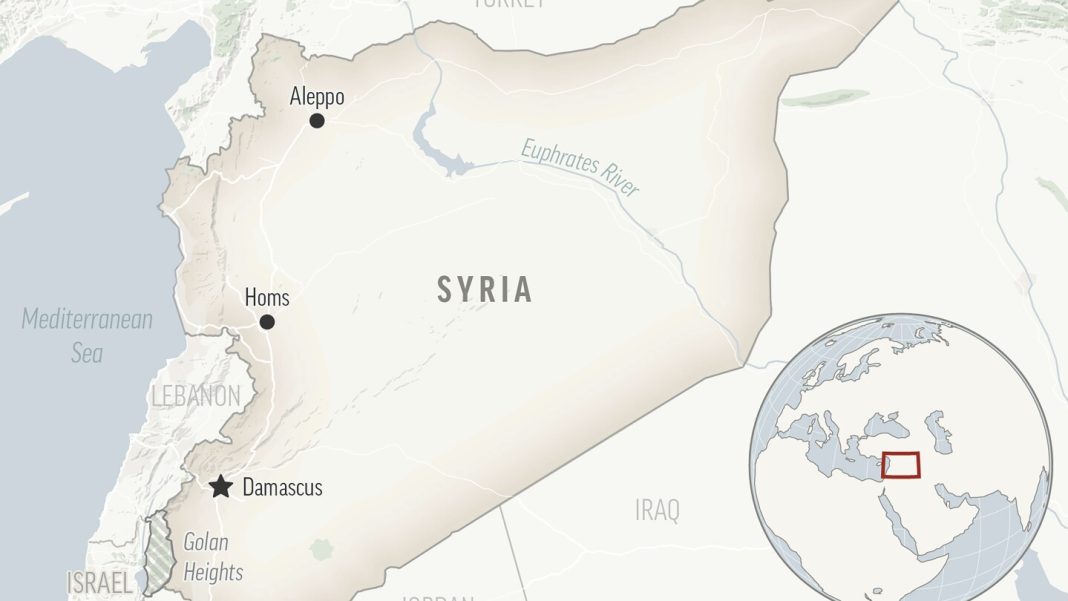BEIRUT (news agencies) — An Israeli drone strike on a car Monday near the Lebanon-Syria border killed a prominent Syrian businessman who was sanctioned by the United States and had close ties to the government of Syrian President Bashar Assad, according to pro-government media and an official from an Iran-backed group.
Mohammed Baraa Katerji was killed when a drone strike hit his car near the area of Saboura, a few kilometers or miles inside Syria after apparently crossing from Lebanon. Israel’s air force has carried out hundreds of airstrikes in recent years, mainly targeting members of Iran-backed groups and Syria’s military. But it has been rare to hit personalities from within the government.
The strike also came as Israel and Lebanon’s Hezbollah group have been exchanging fire on an almost daily basis since early October, after the start of the Israel-Hamas war.
An official from an Iran-backed group said that Katerji was killed instantly while in his SUV on the highway linking Lebanon with Syria. The official spoke on condition of anonymity because he wasn’t authorized to speak to the media.
The pro-government Al-Watan daily quoted unnamed “sources” as saying that Katerji, 48, was killed in a “Zionist drone strike on his car.” It gave no further details.
Rami Abdurrahman, who heads the Britain-based opposition war monitor Syrian Observatory for Human Rights, said that Katerji was killed while in a car with Lebanese licence plates, adding that he was apparently targeted because he used to fund the “Syrian resistance” against Israel in the Golan Heights, as well as his links to Iran-backed groups in Syria.
Israel, which has vowed to stop Iranian entrenchment in its northern neighbor, has carried out hundreds of strikes on targets in government-controlled parts of Syria in recent years, but it rarely acknowledges them.
The U.S. Department of the Treasury’s Office of Foreign Assets Control, or OFAC, sanctioned Katerji in 2018 as Assad’s middleman to trade oil with the Islamic State group and for facilitating weapons shipments from Iraq to Syria.
The U.S. Treasury declined media requests for comment. The sanctions imposed on Katerji were authorized under an Obama-era executive order issued in 2011 that prohibits certain transactions with Syria. A search of the OFAC database indicates that the sanctions were still in effect against Katerji and his firm at the time of his death.
OFAC said in 2018 that Katerji was responsible for import and export activities in Syria and assisted with transporting weapons and ammunition under the pretext of importing and exporting food items. These shipments were overseen by the U.S. designated Syrian General Intelligence Directorate, according to OFAC.
It added that the Syria-based Katerji Company is a trucking company that has also shipped weapons from Iraq to Syria. Additionally, in a 2016 trade deal between the government of Syria and IS, the Katerji Company was identified as the exclusive agent for providing supplies to IS-controlled areas, including oil and other commodities.
Katerji and his brother, Hussam — widely referred to in Syria as the “Katerji brothers” — got involved in oil business a few years after the country’s conflict began in March 2011. Hussam Katerji is a former member of Syria’s parliament.
Albert Aji in Damascus, Syria, and Fatima Hussein in Washington, contributed to this report.



